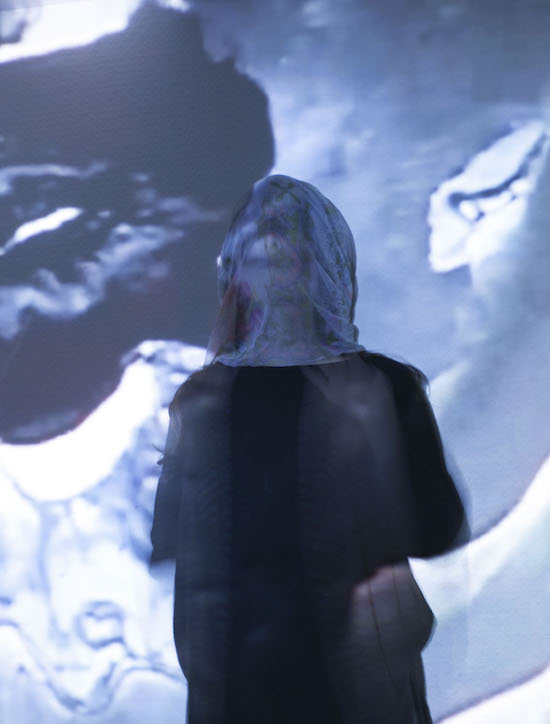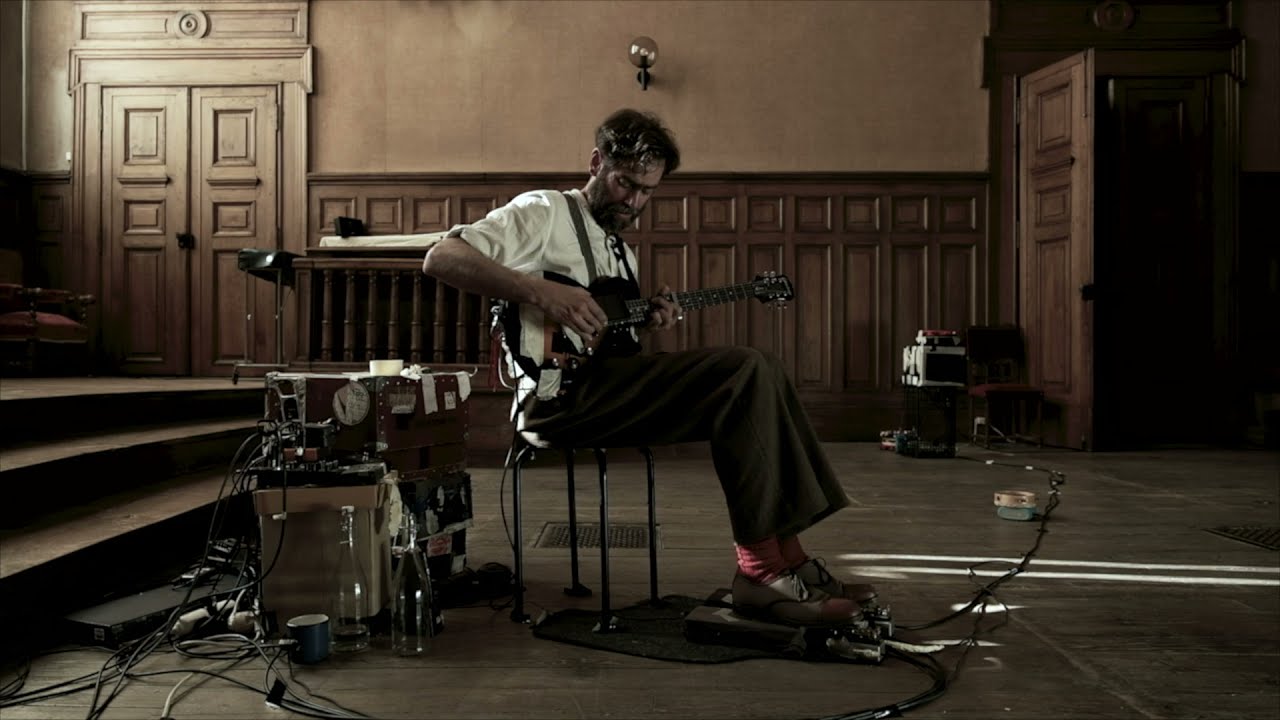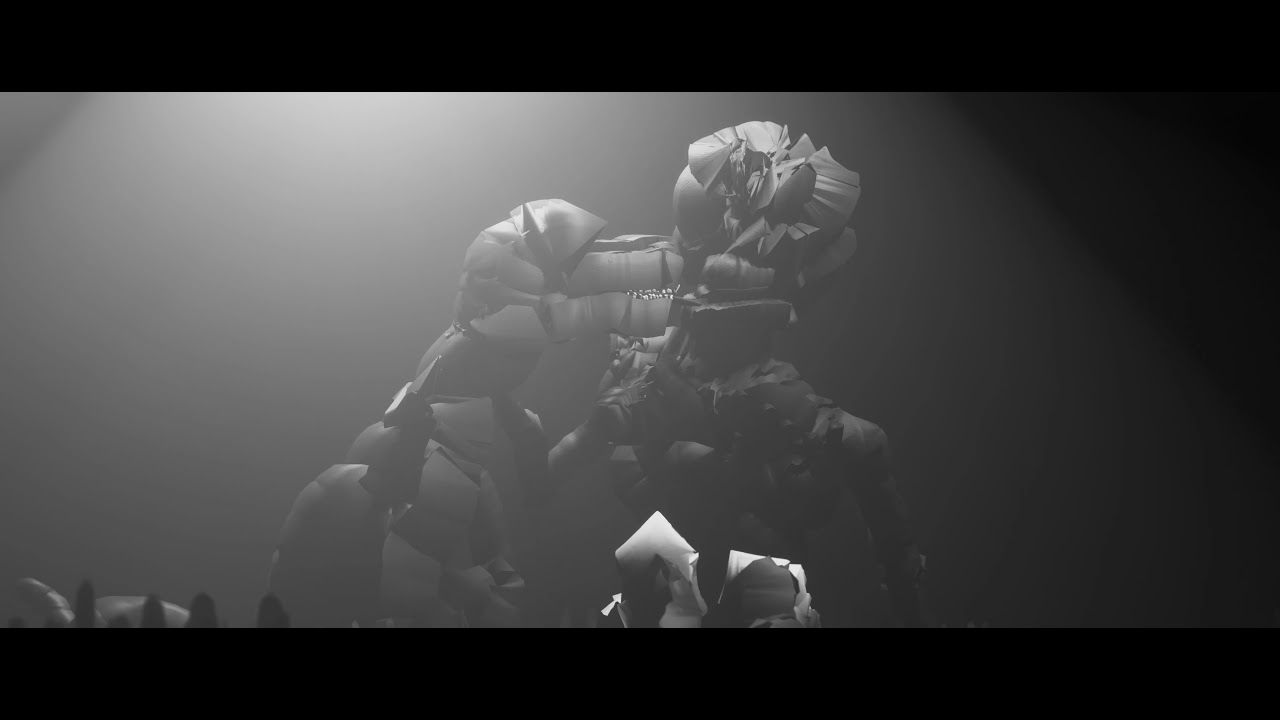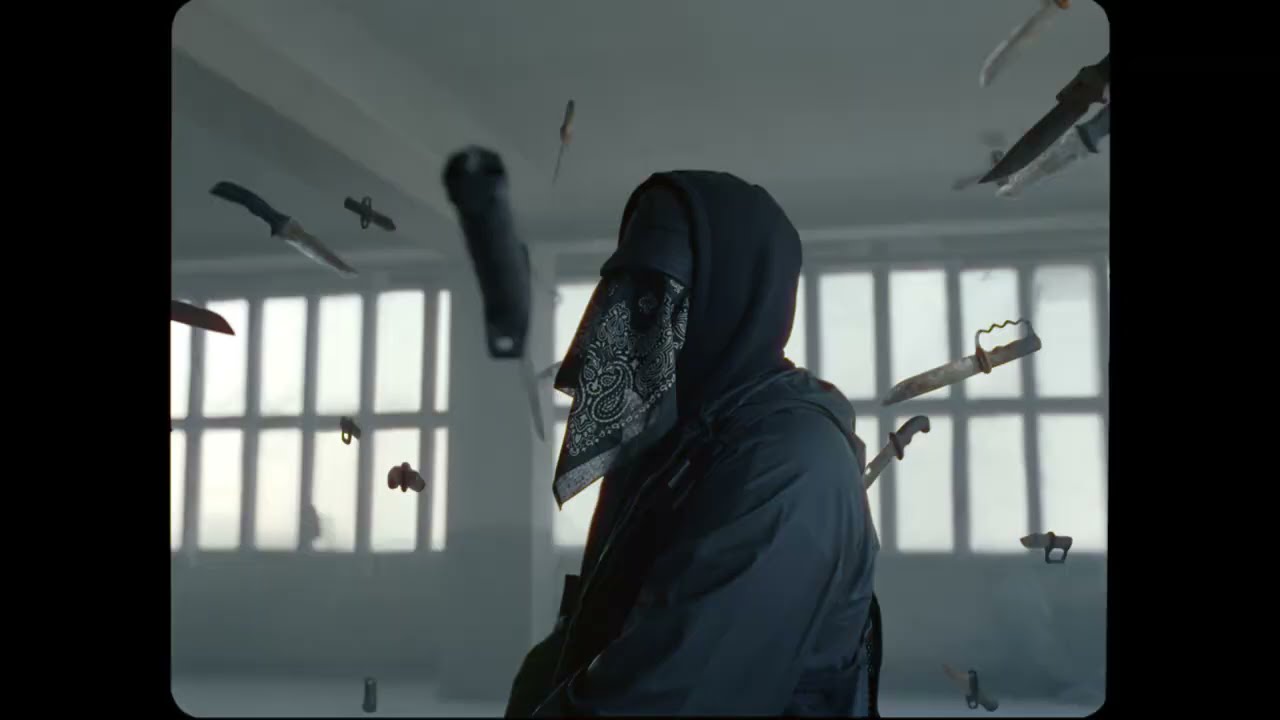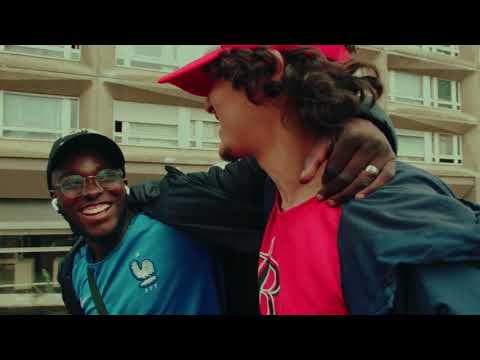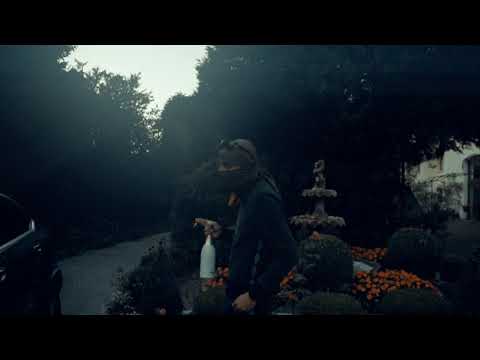This is the last column of the year, around the point when I realise how many utterly brilliant albums I’ve missed and have to rethink my list of favourites. There won’t actually be a ranking this year but at the end of this column I’m going to highlight a few of those overlooked gems.
First up, though, I’m going to deal with some new music and, as usual, I’ve provided a mix which draws on the releases below but also features synth waver Rémi Parson, noise artist Terrine, a couple of very different rap cuts from Big B (who has released two excellent albums recently) Jwles and Hidden People – who have rapidly followed up the Tambour Cloche album reviewed in March with Comment S’Etaient Ils Rencontrés, a track from Loïc Ponceau of Les Dragons Du Poiteau’s Negronagra project (on his new yé,fra! label), trio Theodore Wild Ride (featuring Christine Ott and Mathieu Gabry of Snowdrops and oud player Ophir Levy) and Franco-Algerian producer Sophia Hamadi recording under the name S Diamah.
Thomas Bonvalet aka L’Ocelle Mare has recently shared a series of videos to accompany the release of his latest album Sans Chemin (‘without a path’). They bring home the way in which, in his own words, Bonvelet’s music is “an assemblage of gestural memories”. One could even refer to these gestures as his ‘bag of tricks’ but that might imply some sleight of hand or deception, when really these pieces are as transparent and direct as music gets.
On one level the track titles on Sans Chemin are purely functional, enumerating the instruments and items employed in their production, from guitar, organ and piano to painter’s tape, telephone, “church” and various resonant frequencies (440Hz, 333Hz). But there’s also something of Georges Perec, the French writer associated with the Oulipo group who wrote pieces like Attempt At An Inventory Of The Liquid And Solid Foodstuffs Ingurgitated By Me In The Course Of The Year Nineteen Hundred And Seventy Four (eg “One blini, one empanada, one dried beef”), in the focus on the materiality of the words themselves, how they sound, how they rub together.
Similarly, Bonvalet’s focus on the materiality of instruments and objects, their rubbing together and the spaces they’re played in, creates its own poetry. In pop music, instrumental sounds are often signifiers as much as anything – use of pedal steel, for example, is about what the sound of pedal steel evokes, the connotations it has accrued over time. But Bonvalet’s work enchants by paying such close attention to the materiality of instruments as objects, and objects’ potential as instruments.
Aquaserge’s The Possibility Of A New Work for Aquaserge is part of the revived Made To Measure series on Crammed Discs, intended to showcase inventive instrumental work and experimental side-projects. Recent releases have included ‘Xpujil a single, immersive 40-minute piece, by Franco-Chilean duo Nova Materia, inspired by a trip to the ruins of an ancient Mayan city in Mexico. If Aquaserge’s last studio album, Tour Du Monde, was often the psych/prog band at their most upbeat and accessible then this presents as something more challenging: a tribute to mid-20th century composers Edgard Varèse, Giacinto Scelsi, Morton Feldman and György Ligeti, in the form of original compositions inspired by them and versions of songs written by Varèse and Feldman. And it is, in parts – the ‘Hommage À Giacinto Celsi’ is a stream of wailing, pulsing tones, rising out of and dwindling away into silence, while ten-minute Ligeti tribute ‘Nuit Terrestre’ is even more hauntingly spare. But the quintet, even augmented to a nine-piece with extra percussion, flute and two saxes, can still roll out a lovely, plunking-bass groove, as demonstrated on sumptuous Varèse song (with lyrics by poet Paul Verlaine) ‘Un Grand Sommeil Noir’ or underpinning the controlled chaos of ‘Comme Des Carrées De Feldman’. The two brief versions of Feldman’s ‘Only’, meanwhile, are swoon-inducingly gorgeous.
Laurent Gérard has recently been performing and recording as part of trio Orgue Agnès, this is the first release as Èlg to feature a band, or at least a loose agglomeration of musicians, including percussionist Johan Mazé, various vocalists (Claire Vailler, Catherine Hershey, Frederic Bernier and La Drache) and guitarist Mocke. It was inspired by a period of insomnia, which can cause hypnagogic hallucinations to bleed into waking life. This is fertile territory for Gérard, whose music has often appeared to follow its own dream logic.
On twinkling closer ‘Nouvelles Du Bardo‘ and ‘La Nappe D’Urne’ Èlg, accompanied by the honeyed voice of Catherine Hershey, he sounds (mostly) pleasantly discombobulated, as though anaesthetised, but otherwise there’s a spiky, spasmodic energy to the ‘band’ performances, with several of the tracks having been captured live. Gérard’s ragged vocals ride a squiggly keyboard riff as the rhythmic tension builds on ‘Karl Est En Dedans’, ‘La Mort Roulée En Nem’ (‘death rolled up in a spring roll’ I think) features a strutting funk groove and ‘Remerciements’ features a grinding, Beefheartian blues riff. It’s a striking new turn from a musician who refuses to be pinned down.
Extremely private composer, performer and visual artist Anne Gillis began her musical career in the mid-80s with a series of albums released in rapid succession that almost exclusively featured the sound of her voice, sighs and snippets of breath, what she calls “molecules of voice” looped into abstraction. She has spoken herself of wanting to “eat music” and the way in which her body “metamorphoses” the sounds she hears in her daily life. … is her first album of new material since 1994’s Euragine. Gillis has moved on musically since the 80s, building up the pieces here from snatches of interference, hiss, static, mic noise and perhaps dodgy cable connections, which can manifest as violent electrical storms that rise up suddenly then dissipate, metronomic rhythm, or high, whistling tones that intermingle with eerie wisps of vocal. And there’s even a rather cute, fragile synth pop tune buried under the cracking, crackling surface of ‘Appel À La Base’.
Auras Around Humans is the first full-length release as Sopoorific from Alison Flora, another multi-disciplinary, Toulouse-based artist who says she’s influenced by “Roland Topor, Genesis P-Orridge, Alejandro Jodorowsky, Boleslaw Biegas”, art brut and Viennese Actionism, and whose Blood series features drawings on paper using her own blood. Unsurprisingly her music has its gothic tendencies, but they’re very much of the 4AD, pastel-shade variety – on the title track, the lovely ‘Gamelan Bells’ and ‘Blessed With The Silent Rain’ it’s all music-box arpeggios and susurrant spoken word. But she also broadens the palette beautifully with the primitive synth workout ‘Molosse’, the slippery ‘Wet Bones’ – which sounds like someone singing to themselves in a waterlogged cave – and the tribalistic march of ‘They Came From The Sky’.
Vlug is the follow up to last year’s scintillating À L’Ombre Des Roches from Lyon’s Organizatsiya, who are Léo Peinturier and Zoé Coupé, joined by Maxime Bisson who provides guitar and gooey, chorused bass. They’re on a Dutch label again, this time Raakvlak rather than Knekelhuis and features contributions from Dutch poet and spoken word artist Rik Van Boeckel. It picks up where À L’Ombre Des Roches in sounding like it wouldn’t have been out of place on Crammed in the 80s, with its rich electronic detailing and its widescreen interleaving of global sounds and light-industrial grooves. It’s full of mystery, eastern scales and a prowling rhythm on ‘Looking Outside’ and ‘Akzident, and throughout there are lustrous guitar lines and restless electronic production that somehow crams in masses of detail and ear-teasing sound manipulation while still allowing space for the tracks’ emotional core to resonate. Which is quite an achievement.
As mentioned in the last column, the sound of UK drill has had a significant impact on French rap Often this manifests in artists including a drill track or two on their albums, but others like Gazo and now Ziak, whose debut album Akimbo has arrived like a giant Acme anvil dropping from the sky, have made it central to their identity. Not untypically for a drill artist, Ziak covers his face, and little is known about him other than the clues sprinkles throughout his music, with suggestions of North African but also perhaps ‘Zarabe’ (the name given to the island’s Muslim community) heritage, with the brief ‘La Zalousie’ interlude featuring a traditional maloya rhythm. There’s been plenty of discussion about his ‘authenticity’, the age-old question of whether he really lives the lifestyle he depicts, and whether it matters, or perhaps that he’s an established rapper jumping on the drill bandwagon – but this might be in part because he already sounds so seasoned, battle-hardened. At full stentorian intensity, as on the title track, it’s like he’s trying to break through walls using only precise lyrical salvos. The sledgehammer approach is thrilling but wisely he doesn’t try to sustain it over 16 tracks, which he carries alone barring a feature from Maes on ‘Rhum & Machete’. On the quite hyper-poppy ‘Shonen’ he dips into Auto-Tune while ‘Lauiss’ has a retooled 90s beat. 2-Step is an influence that crops very occasionally in French rap, and I don’t think it’s what Ziak’s fans come to him for, but ‘Badman Trip’ is one of the most convincingly sculpted takes I’ve heard; I love it.
The underground French rap scene, mediated through the internet and a number of hugely dedicated social media accounts and sites, is a space where its now possible to find idiosyncratic, and widely diverging, visions and voices that have very little to do with the mainstream, despite the odd name breaking through and gaining wider acceptance. A good primer comes in the form of the La Tape release from a collective of beatmakers called Le Blaze, featuring some of the key names of the ‘new wave’. One of its figureheads, Le Fève (who also recently released the entrancing ‘Mauvais Payeur’) raps about “du futur rap a l’ancienne” (“future rap the old way”) on ‘Le Cible’ over a beat like a piston, and there’s Khali – an old head on young shoulders, with an instantly recognisable voice that buzzes like a despondent wasp trapped under a glass – on the minor-key trap of ‘Bazar’, while Malo laying his sombre tone on the elegiac ‘Innocent’ (“those who hate me are like me… no-one is innocent here”) is among the other treats.
Irko’s highly distinctive Ghillie In The Mist demonstrates the benefits of working with a single beatmaker – in this case Amnezzia – in shaping a unique sound, with production, lyrics and flow in lockstep with each other. The pair have fashioned a deliberately sci-fi sound – on ‘Sept’ and ‘Aqua’ his rap is low-temperature, robotic, almost affectless at time, sometimes stuttering and glitching, while the beat ticks and twitches menacingly and eerie samples float around the mix. They switch up a bit for low-key bangers ‘Rolly’ and ‘Tenere’ but the overriding impression is of the kind of music the alien from Predator would be seriously into.
Now for the ones that almost got away. First up, Éclipse Des Ocelles from Brussels based French visual artist, producer and violin player Roxane Métayer folds field recordings and treated and looped, folky violin into each other to sublime effect.
Cantenac Dagar have been going since around 2013, releasing a series of CD-Rs, LPs and cassettes in various labels, with this one coming from Blindblindblind Records, run in Budapest by a Buddhist monk. The duo’s basic set-up is a beatbox, a banjo and a cassette player, and they like things raw and trance-y. Of the two tracks on Sesuda, ‘Saique’ is a bit like France (the band) with a drum machine, plus what sounds like taped crowd noise, while ‘Seleau’ is a gloriously gritty, glam-like stomp stretched out to 18 minutes.
Now that Café Oto’s lockdown-inspired Takuroku label has wound down, I’ve taken time to revisit composer, improviser, sax player and filmmaker Jean-Luc Guionnet’s massive Totality – which isn’t to say I’ve quite wrapped my head around the nearly four hour epic featuring the calming, enigmatic and disturbing voices of 83 artists he asked to contribute, in 20 different languages but also, for quite a lot of the opening section, the sound of wind, ebbing and flowing in intensity, blasts of white noise, creaky violin, crunchy mic noise, running water and squalling sax. As its name suggests, this requires total immersion.
At the time of writing, rapper and producer Joaqm is due to release a new release to follow January’s Retrospective Mixtape, which has just recently made available on Bandcamp. Whether he’s supplying his own beats or calling on collaborators like Enfnt, Meel B, Yeeshy and Kvyzer, he ensures there’s a constant flow of chewy, springy new ideas, with tracks rarely breaking the two-minute mark but bursting with freak energy and disorientating twists, a perfect foil for Joaqm’s almost childlike voice and staccato flow. It’s dangerously addictive.
Finally, I want to give a shout out to some of the other French rap artists whose albums/EPs/mixtapes (multiple releases in some cases) have soundtracked my year, so hats off to Lala &ce, TripleGo, Laylow, Tedax Max, Jorrdee, Big B, Luni Sacks, H Jeune Crack, Ateyaba, Gizo Evoracci, Cinco, Tuerie, Gazo, Khali, JMK$ & 8Ruki, Robdbloc, Fiji God, 1PLIKÉ140, Zinée, Zaddyllusion, Eloquence & Joe Lucazz, Benjamin Epps, Leleee, Bleu Nuit, Slkrack, Lazuli, Deen Burbigo, Eddy Woogy, Nyluu, Zuukou Mayzie, Jewel Usain, Jäde, Lil Euphon, Veust, Bob Marlich, Dawg Sinatra & Kon Queso, Beamer & Winnterzuko, Zaky, Sheldon, A$tro Boi, Kaneki Carti, Ocho Tres, Azur, thaHomey & Dirtyiceboyz, Loto, Dinos, Bricksy & 3G, Josué, Feel, yswanj and many, many more – plus Alpha Wann, whose last mixtape came out last December but who has taken every track he’s featured on this year into the stratosphere.
Quietus Mix 29
Organizatsiya – ‘Thought’ (Raakvlak)
Irko – ‘Sept’ (LQ Records)
Sopoorific – ‘Wet Bones’ (Grande Rousse)
Rémi Parson – ‘Avant La Nuit’ (Isolaa Records)
Terrine – ‘Tourner En Rond’ (Tanzprocesz/Bruit Direct Disques)
Jwles – ‘Hehe’ (LTR Worldwide)
Èlg – ‘Convoi D’Annonciatrices’ (Vlek)
Hidden People – ‘Invincibles’ (Dur Et Doux)
Ziak – ‘Gros Lot’ (Errro/Chrome Castle)
Big B – ‘B Wop’ (BIGB Records)
Negronagra – ‘Carbone’ (Yé,fra!)
Aquaserge – ‘Comme Des Carrés De Feldman’ (Crammed Discs)
L’Ocelle Mare – ‘Banjo, Colophane, Interrupteurs…’ (Shelter Press/Murailles Music)
Anne Gillis – ‘Appel À La Base’ (Art Into Life)
Roxane Métayer – ‘Plus Brume, Que Lune’ (Morc Records)
Theodore Wild Ride – ‘Paoha’
Le Blaze ft Malo, Seak & Mouad – ‘Innocent’ (Le Blaze Co./Label Blue Sky)
S Diamah – ‘Istiqlal’ (Santé Records)
Joaqm – ‘Chapitre’ (Self-Released)

